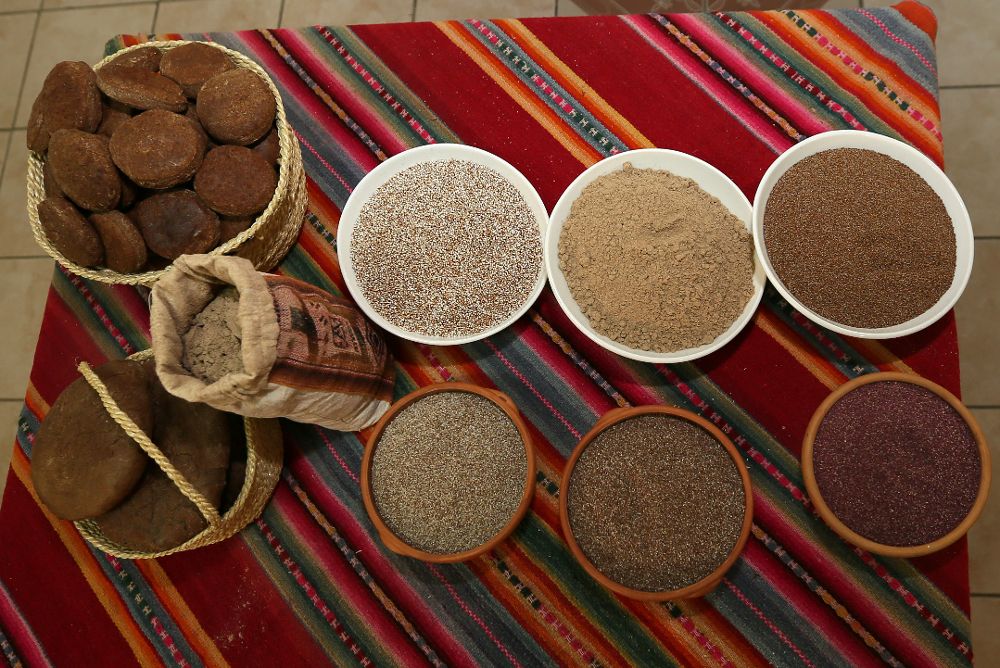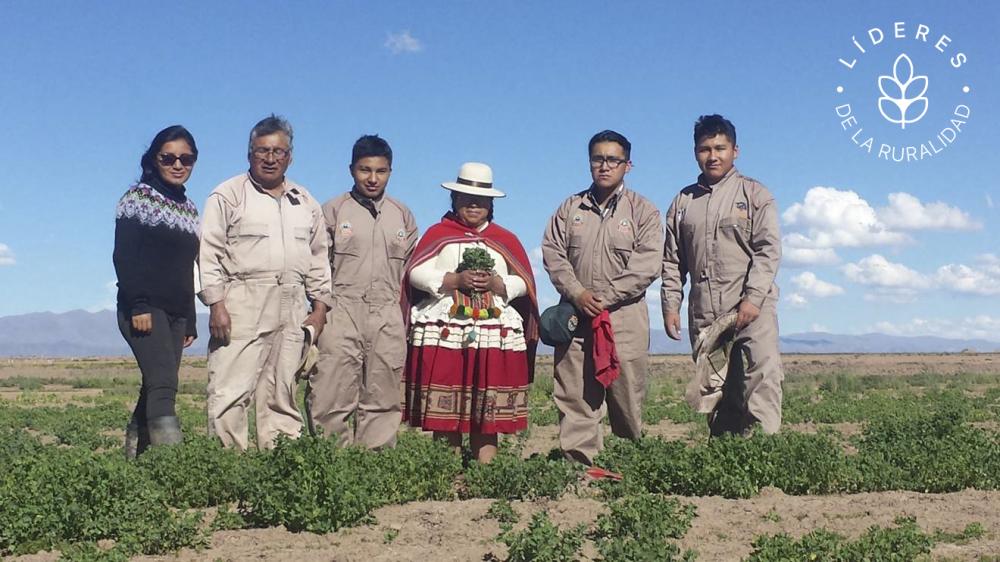Trigidia Jimenez is a Bolivian agricultural engineer of Quechua origin. She used scientific and ancestral techniques to enhance the cultivation of Cañahua. Becoming the largest producer of this grain in Bolivia together with her husband, Wilfredo Canaviri. Tigridia has become an international benchmark for her work in the production, transformation and marketing of this smart crop. For this, she was recognized as one of the “Rural Leaders” of the Americas by the Inter-American Institute for Cooperation on Agriculture (IICA).

Cañahua is an Andean grain that is equally or more healthy than quinoa. The crop was developed by indigenous peoples in pre-Hispanic times but replaced by new production introduced by the colonial power. This grain is the new offer from Bolivia for the international market due to its nutritional properties and its resistance to climate change. Cañahua is particularly rich in soluble fiber, which facilitates digestion and promotes gastrointestinal health. It’s ideal for people with gastritis and ulcers, since it can be easily incorporated into a soft diet. It is consumed in drinks or rolls, yogurt, milk, cakes or puddings, but its leaves are also used to prepare salads due to the amount of protein they contain. Tigridia calls the grain a “Natural Red Bull”

It has proven to be resistant to droughts and floods, which demonstrates its value in guaranteeing food security. Due to these reasons, different specialists consider it to be the superfood of the future.
Before Trigidia the cañahua was not well known among the urban actors of the Andean region. The little production that existed in Bolivia was only for self-consumption. Now thanks to her, in the last ten years a virtuous economic dynamic has been generated and more than 1,500 families produce and commercialize it.
The Beginnings
After several years of study, Trigidia began to cultivate her career as a professional in consulting for public institutions, but she felt that “that offices were not her thing“.
“I usually went to help my mother-in-law on weekends to take care of the sheep and some agricultural activities, and that is where I felt very comfortable and very well.”
That’s when, along with her entire family, Trigidia then decided to move to the countryside. Once there they began the construction of the Samiri farm which they now own. At the age of 45, Tigridia put on the skirts (Polleras) a symbol of peasant women in Bolivia. Gaining the satisfaction of rediscovering her roots

Trigidia, a Farmer and Women’s Rights Activist
With the exception of her father, her family believed that agricultural engineering was a career exclusively for men and that a woman should fulfill her obligation to form a home. Now contact with the earth, with the sun and nature are her things.
“I quit a job that didn’t satisfy me and took the risk of starting from scratch, which wasn’t easy with four children. In Bolivia, especially in rural areas, there is still a lot of machismo. A woman has to cook, wash and be a good wife. I didn’t trust myself, I needed my husband’s endorsement for everything. I was afraid that my marriage would not work if I neglected the home,” she recalls.
Despite gender stereotypes, she would become the largest producer of cañahua in Bolivia, forming an impressive venture. Now Tigridia and her husband are an example of agricultural innovation and self-improvement for women within the agronomist community.
“I am a Bolivian Quechua woman proud of her roots. I’ve managed to discover women’s own abilities by breaking the macho stereotypes. In the rural area of Bolivia, it is often considered that a woman cannot lead a company or an enterprise, but I showed that I can, and at the same time be a happy and fulfilled woman ” – Trigidia Jimenez
